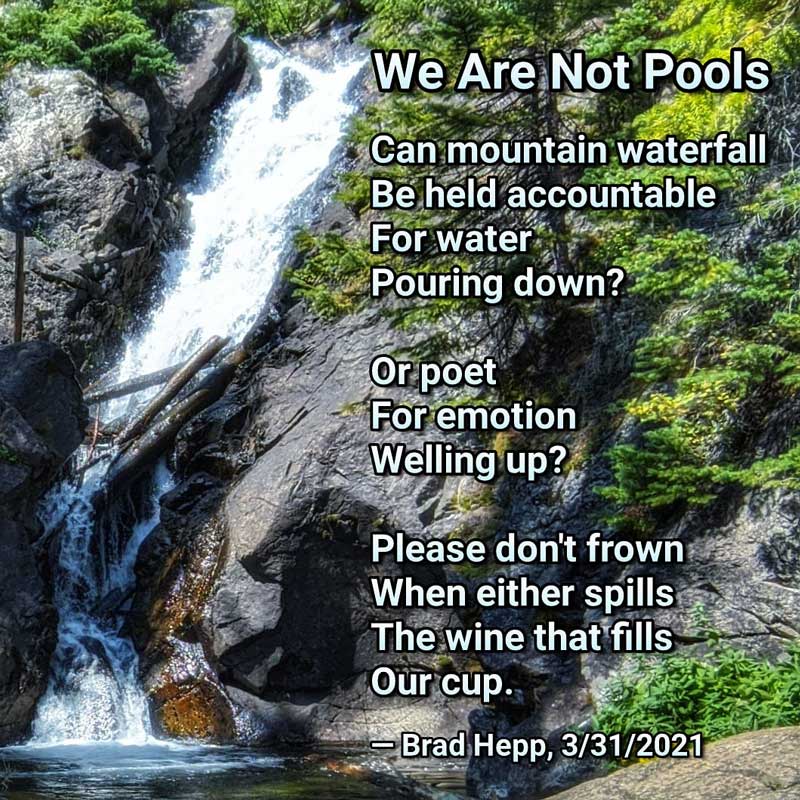
Commentary (Thoughts Running Amok)
Ever since I began writing poetry on a regular basis, I have also pondered what this activity indicates about me: what are the weaknesses a poet needs to acknowledge, and what are the strengths he can celebrate?
A Sample Weakness
[EDIT: I originally wrote and published this late at night, but woke up before dawn with the realization that I had to UNpublish the post and come back with some edits. I had revealed more than I ought to reveal, which is the very tendency I lament in a paragraph below. Someday, the world will suit a poet like me. But not today]
Today, I had a conversation with the senior pastor of a local church. Before I headed over to his church, Susan cautioned me: “Don’t reveal more than you should.” She knows me well. I said, “Pray that I’ll control my mouth, and that I’ll be a blessing to him.”
So, I met the senior pastor at the back door of his church. We walked in, and I immediately began pelting him with questions about his church: how they interact with the neighborhood, how well that is working, etc. After looking at his sanctuary, and talking about how it has served during the pandemic, we went to a more private setting downstairs. I began….
“These last few years, I have been developing as a poet. While some think that poets conceal, their actual drive is to reveal. That’s my natural inclination. But today, I need to control that. I’ll be talking about [something private], and there are things I should not say. Forgive me.” The pastor was understanding, and we talked for another 40 minutes. I believe that by God’s grace I did not tell him more about [the private matter] than I should. Reflecting on what I shared, the pastor gave me hope that I 1) am not alone and 2) serve a God who is changing lives.
The Poet as a Lithe Cat Who Loves Counselors
The little story above is about how I deal with the downside of being a poet: I have to be extra careful about not revealing what’s in my heart. But I usually am not so guarded. Think about it…. A poet is always digging into his own heart to surface emotions and thoughts that would rather stay hidden. He drags them up and exposes them to the light of day where they can be dealt with, sometimes by the poet himself, but more often by the reader, by wiser souls, by counselors. That’s why the poet is a friend of counselors. Like a domestic cat, he brings his daily offering of lizards and rats, and lays them at their door. “Here’s a rat that was running through my heart. What’s its name, and how do we deal with it?”
“Wine That Fills Our Cup”
In the poem I refer to “wine that fills our cup.” Believe me, I like wine, and wine’s not a dead rat. Forget about rats and death. A poet — at least this poet — celebrates life in his expression of emotion. It is not despair that drives me, but hope. Even when speaking of negative, deadly emotions, there is an essential optimism: “This emotion is not my master. I discovered it, am revealing it, and by God’s grace I will see its cure. He will make me whole.”
Even the Wine of Lament
I have been seeking lately to replace anger and bitterness with sadness and sorrow. In essence, to learn lament. Here’s what’s great about lament (at least as I understand it): it is sorrow felt and expressed in the presence of One who can change things, who will change things. When I move to lament, I move closer to hope. Wine is that which dulls, but also cheers.
